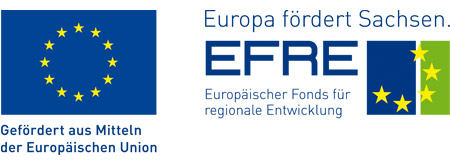New test platform to detect sexually transmitted pathogens
The Fraunhofer IZI and SelfD Technologie GmbH have launched a joint project with the aim of developing a quick home test to detect sexually transmitted bacterial pathogens. The “HomeCare diagnostics system” project is primarily designed to detect the most common pathogens (chlamydia trachomatis and mycoplasma genitalium), which are responsible for over 100 million infections worldwide. If left untreated, these can result in serious long-term consequences such as various chronic diseases, infertility, complications during pregnancy and cancer. Further to the high rate of infection in Europe, there are global infection hotbeds in various African and Southeast Asian countries.

A positive diagnosis must be made in order to ensure effective treatment. There are two primary problems in the case of infections due to sexually transmitted pathogens: The reluctance of the afflicted to seek immediate medical treatment, and further, the lack of suitable systems to provide early diagnosis. The development of this nucleic quick test platform for home use, which is currently unique worldwide, should address these problems. The quick test can be used to swiftly, discreetly and inexpensively detect the presence of pathogens using just a sample of urine. It is very simple; the patient will be able to perform the urine test and read the result themselves using a simple test strip, similar to a pregnancy test. The test is initially focused on the two most-common pathogens. It is hoped to expand this to cover additional sexually transmitted pathogens in the future.
The Fraunhofer IZI is acting as an associated partner of SelfD Technology GmbH due to its many years of experience in the development of diagnostic platforms. The range of duties includes not only the development and transfer of assays to the system, but also the development of a technically and economically feasible microfluidic solution for the miniaturization of all planned procedures. Other project partners include GeSiM Gesellschaft für Silizium-Mikrosysteme mbH (Grosserkmannsdorf / Saxony), Leipzig University Hospital (Institute for Clinical Microbiology and Epidemiology of Infectious Diseases), Institute of Technology of University of Tartu, and Magdeburg Molecular Detections GmbH (MMD). SelfD Technologie GmbH is a 100 percent subsidiary of Selfdiagnostics OÜ, Estonia, and was founded in Leipzig in 2012 with the purpose of developing an NAAT (nucleic acid amplification technology)-based POCT (point of care testing) platform and devices. The platform will be applicable for several human molecular diagnostics purposes such as testing for infectious diseases, genetic testing, personalized medicine related testing etc..
Dr. Thomas Tradler, head of business development and patent management at Fraunhofer IZI: “Thanks to great support from the state of Saxony and the city of Leipzig, we have successfully convinced another company to set up in Leipzig. Following the successful establishment of several US, Canadian and Australian companies, SelfD GmbH represents the first settlement of an Estonian biotechnology company in Leipzig, a centre of the German biotechnology industry.”
Mr. Marko Lehes, Founder and CEO of SelfD Technologie GmbH says: “We strongly believe in the worldwide success of these kind of easy-to-use rapid healthcare tests and co-operating with Fraunhofer IZI gives us a good basis to be successful. Within three to four years the product should be ready for international marketing and sales, taking a significant share of a 100 million Euro opportunity.”
The project is financed with a total of approximately € 2.6 million from the Sächsische Aufbaubank (Development Bank of Saxony) from funds granted by the European Regional Development Fund (ERDF) and the state of Saxony.